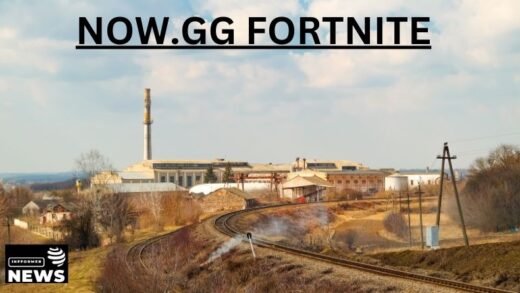BBC News: A Global Leader in Broadcasting
In the realm of modern media, few names are as synonymous with trust, credibility, and global reach as BBC News. Established in the United Kingdom as a public service broadcaster, BBC News has expanded over the decades to become one of the most reputable news organizations in the world. It covers everything from breaking news, investigative journalism, and in-depth documentaries to offering online content that reaches millions of people worldwide every day. This article delves into the history, role, and influence of BBC News in the media landscape, shedding light on why it remains a household name.
The Origins of BBC News
BBC News traces its origins back to the inception of the British Broadcasting Corporation (BBC) itself. The BBC was founded in 1922, initially as a radio service, with its first-ever broadcast taking place on November 14 of that year. The organization was created under a Royal Charter and aimed to provide impartial, informative, and educational content to the British public. BBC News as we know it today evolved from these early broadcasts, laying the foundation for what would become a global network of news services.
The first radio news bulletins were introduced in 1922, and by 1936, the BBC launched its television service, which was among the earliest in the world. However, World War II marked a turning point for the BBC’s news division. During the war, the BBC became a vital source of information, not just for the British public but for people across Europe, offering reliable updates during a time of widespread propaganda and misinformation. This period helped solidify BBC News’ reputation for credibility, a trait that still defines it to this day.
The Structure and Mission of BBC News
BBC News operates under the broader umbrella of the BBC, which is funded by the television license fee paid by UK households. This funding model ensures that the organization is free from commercial pressures that can influence content, allowing it to maintain editorial independence. The mission of BBC News is simple yet profound: to provide accurate, impartial, and balanced reporting on national and international events. This commitment to impartiality is enshrined in the BBC’s charter, which states that the broadcaster must remain independent of government, political, or commercial influence.
The structure of BBC News is divided into several segments, with specialized departments for radio, television, and online content. It operates 24/7, producing content in multiple languages for both domestic and international audiences. BBC World Service, for instance, provides news in over 40 languages, ensuring that its reach extends far beyond the English-speaking world. Additionally, BBC News Online offers round-the-clock updates and in-depth analysis, making it one of the most visited news websites globally.
Global Reach and Influence
The influence of BBC News extends far beyond the borders of the United Kingdom. Its international division, BBC World News, broadcasts to millions of viewers in over 200 countries and territories, making it one of the most widely distributed news channels globally. BBC World Service radio also reaches an estimated weekly audience of 365 million people around the world, making it a significant player in global media.
One of the reasons BBC News has such a broad global reach is its commitment to covering international news with the same level of detail and impartiality as domestic news. Its correspondents are stationed in major cities across the globe, providing on-the-ground reporting from conflict zones, political hotspots, and regions that are often underrepresented in other media outlets. Whether it’s covering the Syrian civil war, the refugee crisis, or the complexities of climate change, BBC News ensures that its viewers receive comprehensive and balanced reports.
Moreover, the BBC’s online platform has expanded its audience significantly, offering news in text, video, and audio formats. With the rise of digital media, BBC News has successfully adapted, offering breaking news alerts, live streams, and interactive content to engage its audience in new and innovative ways.
Maintaining Impartiality in a Fragmented Media Landscape
In today’s fragmented media landscape, where misinformation, fake news, and bias have become significant concerns, BBC News has managed to maintain its reputation for impartiality and factual reporting. One of the most critical factors contributing to this is the BBC’s adherence to strict editorial guidelines that emphasize accuracy, fairness, and balance. All news reports undergo rigorous fact-checking processes, and any corrections or clarifications are swiftly issued if necessary.
However, maintaining impartiality has not come without challenges. In an era where media organizations are often accused of having political biases, the BBC has faced criticism from both ends of the political spectrum. Some accuse it of being too conservative, while others argue it leans too far to the left. Despite these critiques, the BBC continues to adhere to its mandate of neutrality, aiming to provide a platform for all voices while avoiding partisanship.
The BBC also places significant emphasis on transparency. The BBC’s editorial complaints process allows viewers and listeners to submit concerns about coverage, ensuring accountability and fostering trust with its audience. This system of checks and balances has helped the BBC retain its status as a credible news source in a world where media trust is declining.
Challenges in the Digital Age
While BBC News remains one of the most trusted news organizations, it faces a number of challenges in the digital age. The rise of social media platforms like Facebook, Twitter, and YouTube has dramatically changed how people consume news. Younger audiences, in particular, are turning away from traditional television and radio broadcasts in favor of digital platforms, where content is often faster, more interactive, and tailored to individual preferences through algorithms.
To keep up with this shift, BBC News has invested heavily in its digital presence. Its website and mobile apps offer live updates, video news reports, and features that allow users to customize their news feeds. Moreover, the BBC has also embraced social media, using these platforms to disseminate news and engage with audiences in real-time.
Despite these efforts, the digital landscape presents unique challenges. One of the biggest issues is the spread of misinformation, which can be disseminated rapidly through social media. While BBC News has strict editorial standards, it must constantly battle against fake news and unverified information that circulates online. Furthermore, the pressure to keep up with the 24-hour news cycle can sometimes result in premature reporting, leading to inaccuracies that require correction.
The Future of BBC News
As the media landscape continues to evolve, BBC News will undoubtedly face new challenges, but it is also well-positioned to continue its legacy of trustworthy journalism. With increasing pressure on news organizations to provide instant updates, the BBC’s commitment to accuracy and impartiality will be more important than ever. It has already made strides in adapting to the digital age, and its global audience remains loyal.
Looking forward, BBC News may need to explore new formats and technologies to remain competitive in an increasingly digital world. This might include more immersive storytelling formats like virtual reality (VR) or augmented reality (AR), which could revolutionize how news is consumed. Additionally, there will likely be continued emphasis on mobile platforms and streaming services as younger audiences continue to shift away from traditional forms of media.
Conclusion
BBC News has come a long way since its inception in 1922. From its humble beginnings as a radio service to its current status as a global news leader, the organization has consistently upheld its mission to provide accurate, impartial, and reliable news to audiences worldwide. Despite the challenges posed by the digital age, BBC News remains a trusted source of information in an increasingly complex media landscape. Its commitment to editorial independence, global coverage, and transparency ensures that it will continue to play a vital role in informing the public, both in the UK and around the world.
With a history spanning over 100 years and a reputation built on trust, BBC News continues to set the standard for journalism in the 21st century. As the media industry evolves, one thing remains certain: BBC News will continue to be a beacon of reliable, impartial reporting in a world that desperately needs it.
Read also: check





























































